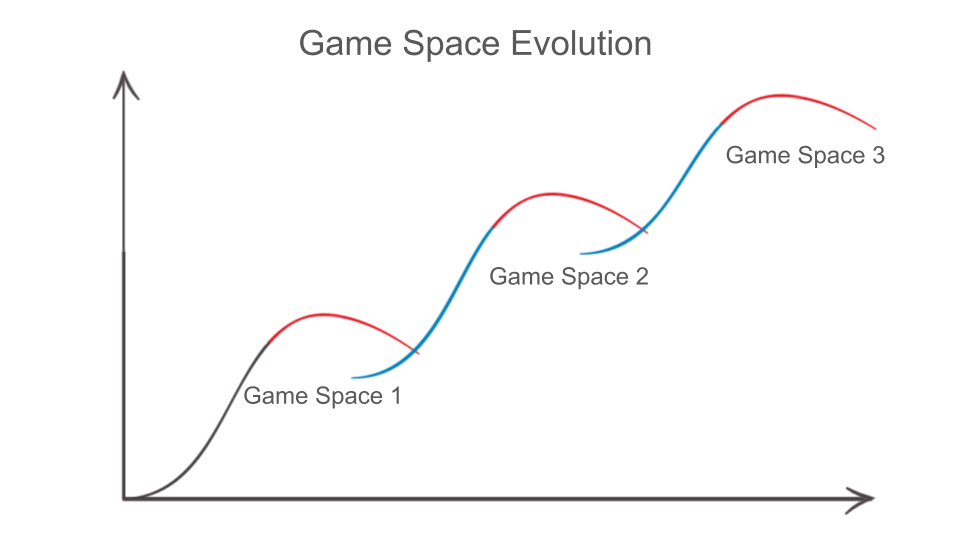2. Benefits of Game Thinking
Business is no longer just about products and markets. Game-based thinking (BAAG) provides concrete benefits that help organizations become more agile, creative, and capable of creating real value.
1. ANTICIPATE GROWTH WITH THE NEXT S-CURVE
Traditional market-focused logic is often reactive: companies develop products and services in an existing market and respond to its changes.
Game thinking allows companies to:
-
Spot opportunities early
-
Build a new game space before the old one fades
-
Ensure continuous value creation regardless of market cycles

Being proactive gives a significant advantage in rapidly changing environments.
2. HUMAN-CENTERED DYNAMICS AND TEAM AGILITY
Business value emerges from the interactions of people, teams, and networks, not just products. In a game space:
-
Individuals and teams are active players whose actions can be evaluated
-
Collaboration and competition intertwine, boosting innovation
-
Agile organizations can react and adjust the rules quickly
Game thinking makes human-centered dynamics visible and measurable — something traditional market logic rarely captures.
3. MEASURING VALUE WITH EXPECTED VALUE (xV)
Value in a game space can be assessed using expected value (xV). This provides a tool to:
-
Evaluate the contribution of individuals, teams, and the organization
-
Measure value before markets exist
-
Track the development of a new game space in real time
This approach makes business assessment more precise and dynamic than simple market analysis.
4. MANAGING CHANGE IN OPEN GAMES
Traditional markets are often like closed sports: rules are fixed, boundaries clear, and value creation happens in controlled conditions.
Game-based thinking resembles open games where:
-
Boundaries are constantly shifting
-
Players and resources vary
-
Rules are negotiated and created continuously
Organizations can manage change and create value in new, unpredictable ways that traditional market-focused thinking misses.
SUMMARY
Game thinking:
-
Enables proactive growth and creation of new opportunities
-
Highlights human dynamics and agility
-
Provides measurable tools for assessing value
-
Allows organizations to manage change in open, dynamic environments